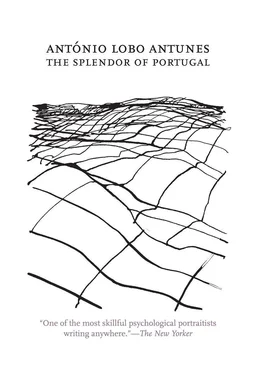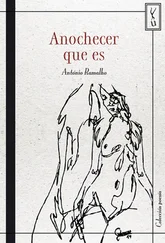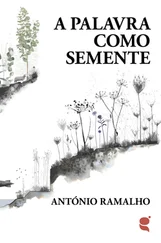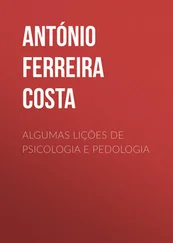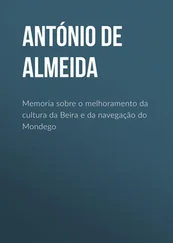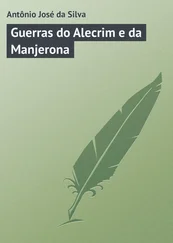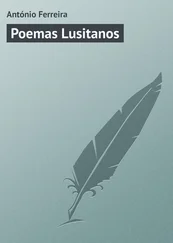António Antunes - The Splendor of Portugal
Здесь есть возможность читать онлайн «António Antunes - The Splendor of Portugal» весь текст электронной книги совершенно бесплатно (целиком полную версию без сокращений). В некоторых случаях можно слушать аудио, скачать через торрент в формате fb2 и присутствует краткое содержание. Год выпуска: 2011, Издательство: Dalkey Archive Press, Жанр: Современная проза, на английском языке. Описание произведения, (предисловие) а так же отзывы посетителей доступны на портале библиотеки ЛибКат.
- Название:The Splendor of Portugal
- Автор:
- Издательство:Dalkey Archive Press
- Жанр:
- Год:2011
- ISBN:нет данных
- Рейтинг книги:3 / 5. Голосов: 1
-
Избранное:Добавить в избранное
- Отзывы:
-
Ваша оценка:
- 60
- 1
- 2
- 3
- 4
- 5
The Splendor of Portugal: краткое содержание, описание и аннотация
Предлагаем к чтению аннотацию, описание, краткое содержание или предисловие (зависит от того, что написал сам автор книги «The Splendor of Portugal»). Если вы не нашли необходимую информацию о книге — напишите в комментариях, мы постараемся отыскать её.
The Splendor of Portugal — читать онлайн бесплатно полную книгу (весь текст) целиком
Ниже представлен текст книги, разбитый по страницам. Система сохранения места последней прочитанной страницы, позволяет с удобством читать онлайн бесплатно книгу «The Splendor of Portugal», без необходимости каждый раз заново искать на чём Вы остановились. Поставьте закладку, и сможете в любой момент перейти на страницу, на которой закончили чтение.
Интервал:
Закладка:
“Comrade”
me, an elderly woman with two other elderly women in the kitchen eating the same canned foods and the same vegetables that the caterpillars had overlooked and drinking the same brown water from the water tank, or rather the same rainwater, the same rust and the same silt, the three of us picking the cotton and the sunflowers in hopes of one day getting to Caxito, God knows how, in the van with no wheels and no engine that served as a birdhouse for the crows, and selling the harvest to the Americans from the oil company, me at the top of the stairs blocking his way into the foyer
“Get out of here”
the Cabindan taking a broken cigarette and a matchbox with no matches out of his bag, looking around at his buddies, who were laughing at him, my godfather pointing at the jackrabbit
“Don’t be a wimp don’t be afraid shoot”
the smoke from the kitchen about a quarter mile away, the jackrabbit motionless on the footpath, the barrel of the rifle going up and down disobeying me, pointing variously at tree trunks, fence posts, the witch doctor’s hut right in the middle of a field where nobody, not even the police, ever dared to knock, he predicted the future and divined illnesses with shells, stones, and roosters’ spurs, turned pale, turned ash-white, cut a rooster’s throat and chewed it while his whole body shook, the Cabindan in his lieutenant’s ribbons and stripes demanding the keys to my house
“Comrade”
the jackrabbit’s ears suddenly alert, its spring-loaded paws ready to jump, my godfather angry with me, staring at me, putting his finger over my finger on the trigger
“You wanna see how to shoot you wanna see how to shoot little girl?”
and I was blinded and deafened by the gun’s report, its blast, the blossom of powder from which the bullet emerged and disappeared, such great force against my temples that I didn’t see the jackrabbit vanish, I didn’t notice, relieved that the animal was still alive, that there was no pile of fur twitching in the dirt, my godfather ripped the rifle from my hands, pulled me up by my elbows until his nose was up against mine, his two eyebrows formed a single eyebrow, his two eyes a single eye ablaze, his chin digging into my chin
“You’ll never get anything right little girl”
awaiting another jackrabbit with me, demanding that I hold the rifle, that I carry it, that I take it back into the tall grass into which the jackrabbit had fled, me on my feet and he behind me at the back of my neck, no longer enraged, just disappointed, sad
“You’ll never get anything right little girl”
he lived in Dala Samba about a mile from the hills where the remains of the Jinga kings resided
palm trees spurting up from the defoliated tops of the hills, and the ghosts of the Jinga princes in a mysterious silence, surrounded by pans and gourds and pipes and maybe even
so it was said
the cadavers of the cattle that had belonged to them and corpses of their wives and children
in a house with columns out front in the middle of the tobacco plantation with hippopotamus and elephant skulls on the porch, lion heads, leopard heads, and antelope heads among the zebra pelts, arrows, spears, harquebuses, my godfather wearing an old colonial helmet with dozens of mulatto grandchildren fathered by his mulatto bastard children scampering around all the rooms of the house, the old man with a cigar between his teeth who, on the first Sunday of every month, even during the rainy season when the forest trails turned to muddy streams and the sky turned black with clouds, took his mule out of the stable, thrashed it with a whip to train it to be obedient and tame its wild nature, the beast kicking, spooked at every strike of lightning, he saddled it, put on the bridle, kicked it in the ribs three or four more times to jog its memory, wore a slicker made of yellow rubber and trotted through the forest for twenty-six hours until he arrived at Baixa de Cassanje to visit my family with one of his mulatto sons walking behind him with a muzzle-loading rifle slung on his back, as enormous and silent as my godfather was verbose and rail-thin, the son to whom he spoke as if he were some annoying stranger and who in turn treated his father like a boss, following him everywhere even if the old man sat down at the table to have lunch with us, or went for a walk with my father to talk about the crops, look for signs of blight, run their fingers along the length of the stalks, they’d go out to hunt forest buffalo, bouncing in the jeep over the divots and bumps in the ground, the Lwena driver at the wheel, my godfather and my father on the bench seat in the back fixing their eyes on the animal’s footprints, the mulatto with the cartridge boxes on his lap and in the middle of all this the jeep stopped at a bend in the river, horns bent over the water, drinking, the old man to his son, not turning around, holding out his open hand
“Sansão”
the mulatto handing him the binoculars and the rifle, my godfather searching through the dense fog for the alpha male, trying to find it based on the arrangement of the females and the calves among all the necks bent down to drink, finding it, spitting out his cigar butt, pulling a new cigar out from under his slicker, shoving it between his lips like some sort of wedge
(I remember the ruddy sideburns, the ruddy mustache, I remember his small head and his crew-cut hair)
measuring up the forest buffalo and felling it, no convulsions on the part of the buffalo, its legs doubled over, completely helpless, the same way my godfather was felled, in turn, two or three Augusts later, during the coldest part of the season, when the tobacco was stiff with hoarfrost in the mornings and we tried to save it covering it with plastic tarps that were attached to a framework made of reeds, constantly harassed by the barking dogs, the old man felled while lying in wait for a single cheetah, an old animal that was missing some of its claws as we could tell from the scratch marks it left devouring one by one the bull calves and she-goats, we tied a goat to a pole, we made a pile of boards and straw to hide ourselves near the anguished cries of the tethered beast, my godfather, my father, me, and the mulatto son, so obedient and silent that you almost forgot he was there holding the guns under his arm, us waiting for the goat to cry out, those shrieks of a murdered child, bleats of pure terror, which attracted the cheetah, a whole night without talking, our bones were chattering, not our teeth, our bones were chattering, listening to the owls, the underbrush, the palm trees on the tombs of the Jinga kings and in the middle of all this the goat stood motionless for the first time since we brought him out there, a long diagonal shadow or the shadow of a shadow
or the shadow of a shadow of a shadow
flowing like water or light over the other shadows, the sound of an acrid, hungry breath that weighed heavy on our blood and thickened it making it vibrate in our veins, rather than course through them, vibrate in our veins
“The cheetah”
my father whispered in the dark shadows of the boards and straw taken from one of the huts, shadows that my insomnia had turned red, shadows that lit candles inside my body, painful
“The cheetah”
my godfather to his son finding a place to rest the barrel of the rifle
“Sansão”
the mulatto taking the binoculars out of their case, cleaning them, loading the carbine, checking the butt of the gun, he paused at the safety as if he foresaw something, who knows what, as if he understood something, who knows what, as if for years and years he had expected something, not tense, calm, not astonished, resigned, something that was going to happen or that my father thought was going to happen now, my godfather who didn’t expect anything, didn’t mistrust anything, focused on the goat that was standing upright with the air of an offering, the long, straight shadow moving across all the other shadows
Читать дальшеИнтервал:
Закладка:
Похожие книги на «The Splendor of Portugal»
Представляем Вашему вниманию похожие книги на «The Splendor of Portugal» списком для выбора. Мы отобрали схожую по названию и смыслу литературу в надежде предоставить читателям больше вариантов отыскать новые, интересные, ещё непрочитанные произведения.
Обсуждение, отзывы о книге «The Splendor of Portugal» и просто собственные мнения читателей. Оставьте ваши комментарии, напишите, что Вы думаете о произведении, его смысле или главных героях. Укажите что конкретно понравилось, а что нет, и почему Вы так считаете.
